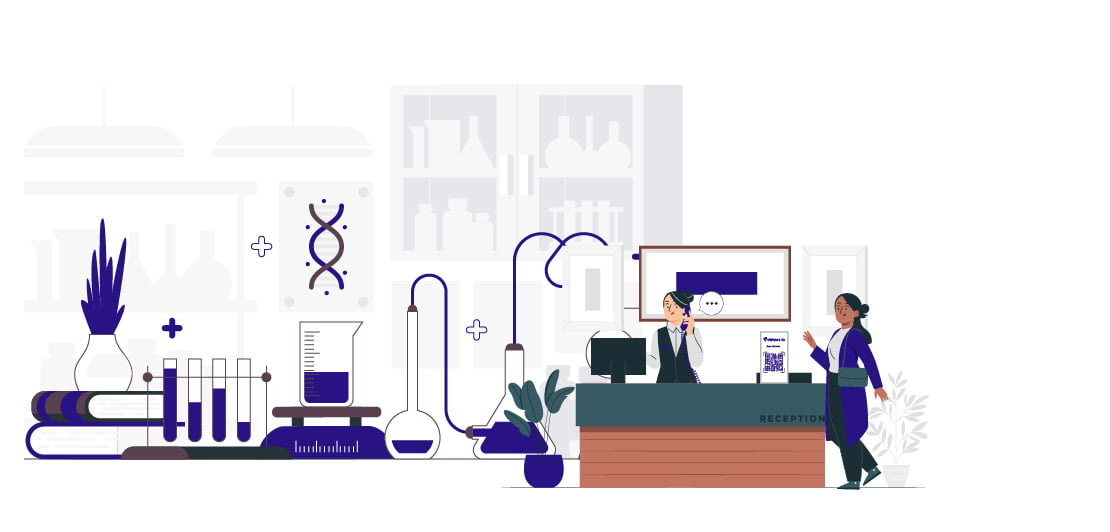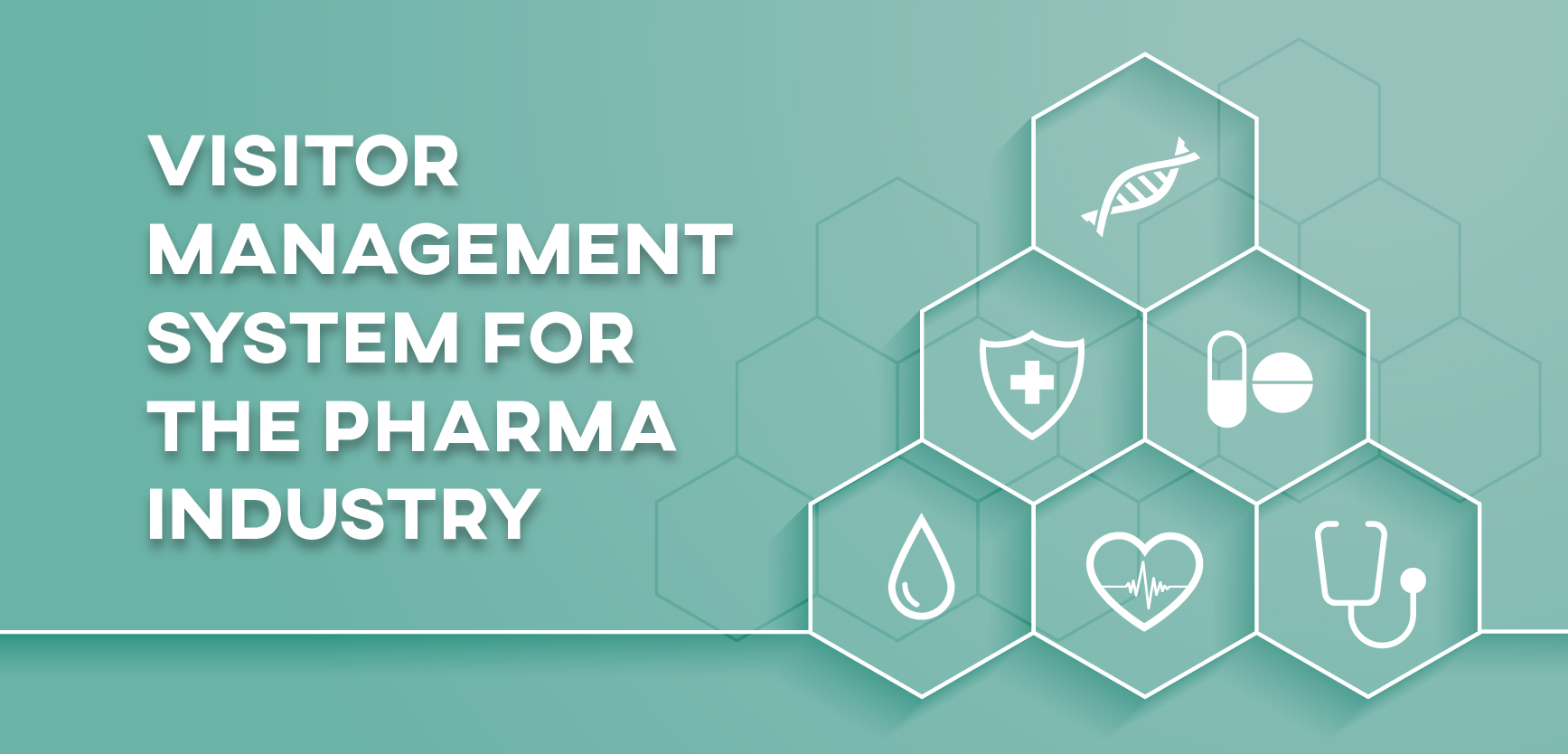The chemical industry plays a critical role in our daily lives, providing us with essential products and materials. However, due to the nature of its operations, safety and security are paramount concerns. One effective way to mitigate risks and ensure the well-being of employees, assets, and visitors is through the implementation of a robust visitor management system. In this blog post, we will explore the importance of visitor management in the chemical industry and how it helps enhance safety and security.
Understanding Visitor Management in the Chemical Industry
Visitor management systems are comprehensive solutions designed to streamline the process of monitoring and controlling visitor access to chemical facilities. These systems consist of various components, including check-in/check-out procedures, identification verification, access control, and visitor tracking. By implementing visitor management systems, chemical plants can enjoy a wide range of benefits.
Chemical industry visitor management software
Visitor management software tailored specifically for the chemical industry offers advanced security features. This software enables organizations to conduct thorough background checks on visitors, ensuring that only authorized individuals gain access to sensitive areas. Additionally, the software can integrate with existing security systems, such as biometric and access control systems, providing real-time monitoring and alerts in case of any security breaches.
Visitor Tracking Systems for Chemical Plants
Tracking visitors within chemical plants is crucial for maintaining accountability and traceability. A visitor tracking system enables organizations to monitor the movements and activities of visitors throughout the facility. In the event of an incident or emergency, this information proves invaluable for conducting investigations and identifying potential sources of contamination or security breaches. By implementing a visitor tracking system, chemical plants can enhance their response capabilities and mitigate risks effectively.
Developing Effective Visitor Management Policies
To ensure the success of a visitor management system, chemical plants must develop robust policies. Secure visitor management policies establish a framework for managing visitor access, outlining the necessary procedures, protocols, and guidelines. By implementing best practices, such as pre-registration, ID verification, and visitor escorts, chemical plants can create a secure environment while facilitating smooth operations. Additionally, regular policy reviews and updates help adapt to evolving security challenges and maintain the effectiveness of the system.
Importance of Visitor Management in the Chemical Industry
Unique Challenges: The chemical industry encounters distinct challenges in managing visitors due to the nature of its operations. Implementing tailored best practices addresses these challenges effectively.
Enhanced Safety and Security: A comprehensive visitor management system improves safety and security within chemical facilities. By controlling visitor access, Organizations can mitigate risks, protect employees and assets, and prevent unauthorized incidents.
Operational Efficiency: Efficient visitor management processes streamline operations and reduce administrative burdens. By implementing a system that automates check-in, registration, and tracking, organizations can optimize resource allocation and enhance overall efficiency.
Reputation Protection: A robust visitor management system demonstrates a commitment to safety and security, safeguarding the reputation of the organization. By prioritizing visitor safety and compliance, companies can maintain the trust of stakeholders and stakeholders.
Regulatory Compliance: Visitor management systems help chemical companies comply with industry regulations and standards.
By enforcing safety protocols and documentation, organizations can demonstrate their adherence to regulatory requirements and avoid penalties.
Best Visitor Management Practices for the Chemical Industry
Implement a Centralized Visitor Management System: Deploy a centralized visitor management system that covers all facilities within the organization. This ensures consistency in processes, data management, and security protocols.
Conduct Regular Training for Employees and Visitors: Provide comprehensive training sessions to both employees and visitors regarding safety procedures, emergency protocols, and specific guidelines for accessing sensitive areas. Regular training helps everyone stay informed and updated on the latest safety measures.
Establish Clear Communication Channels: Establish effective communication channels for emergency or changes to security procedures. This includes implementing an alert system, such as a mass notification system, to quickly disseminate information to visitors and employees in case of emergency or security threats.
Implement Stringent ID Verification: Require all visitors to provide valid identification and undergo thorough identity verification processes. This ensures that only authorized individuals are granted access to the facility, reducing the risk of unauthorized entry and potential security breaches.
Enforce Strict Compliance with Personal Protective Equipment (PPE): Make it mandatory for visitors to wear appropriate personal protective equipment (PPE) as required by the specific areas they are visiting. This includes safety goggles, protective clothing, gloves, and respiratory protection, among others.
Utilize Access Control Systems: Integrate access control systems, such as keycards or biometric scanners, to manage and monitor visitor access to different areas within the facility. This enables granular control over who can enter specific zones and tracks their movements for accountability purposes.
Implement Pre-registration Processes: Establish a pre-registration process for visitors to provide their information in advance, enabling quicker and smoother check-in procedures. This minimizes wait times and ensures that necessary security checks are completed before the visitor’s arrival.
Maintain Visitor Logs and Documentation: Maintain comprehensive visitor logs and documentation to track visitor activities, entry and exit times, and purpose of the visit. This information can be valuable for audits, investigations, and overall security management.
Conduct Regular Security Audits: Perform regular security audits to identify any potential vulnerabilities or gaps in the visitor management system. This allows organizations to continuously improve and enhance their security measures and adapt to changing risks.
Foster a Culture of Safety and Security: Promote a culture of safety and security among employees and visitors by creating awareness, encouraging reporting of suspicious activities, and recognizing individuals who demonstrate exemplary adherence to safety protocols.
By implementing these best practices, chemical plants can create a robust visitor management system that prioritizes safety, security, and risk mitigation. It establishes a proactive approach to visitor management, ensuring the well-being of employees, visitors, and the overall integrity of the organization.
Integrating Technology for Streamlined Visitor Management
Advancements in technology have revolutionized visitor management systems, making them more efficient and user-friendly. Automation plays a significant role in enhancing the effectiveness of these systems. Features such as self-service check-in kiosks, digital badges, and real-time data analytics enable chemical plants to streamline visitor management for the Chemical reduce administrative burdens, and improve overall operational efficiency. Furthermore, the integration of technology helps reduce costs associated with manual record-keeping and increases accuracy in visitor tracking.
Features of a Reliable Visitor Management System for the Chemical Industry
Seamless Visitor Experience: A reliable visitor management system provides a seamless and user-friendly experience for visitors. This includes intuitive self-service check-in processes, easy-to-use touch-screen kiosks, and clear instructions for registration and check-out.
Advance Registration & Notifications: The system should offer the option for visitors to pre-register before their visit. This allows for faster check-in upon arrival. Additionally, automated notifications can be sent to visitors and hosts, keeping them informed about the visit and any changes in schedules or procedures.
Improved Administrative Efficiency: A reliable visitor management system streamlines administrative tasks by automating processes. This includes capturing visitor information, printing visitor badges, and generating real-time reports. The system should also integrate with existing calendars and scheduling tools to simplify appointment management.
Workspace Security & Compliance: The visitor management system should prioritize workspace security and compliance. This can be achieved through features such as identity verification, photo capture, and real-time access control integration. By enforcing security protocols and monitoring visitor activities, the system helps maintain a secure environment and ensures compliance with safety regulations.
Information Management & Data Security: The system should effectively manage visitor information while prioritizing data security. This includes securely storing visitor data, adhering to privacy regulations, and implementing measures to protect against unauthorized access or data breaches.
Cloud-based Storage: A reliable visitor management system often utilizes cloud-based storage for data storage and backups. This ensures data accessibility from any location and offers enhanced security against physical damage or loss.
Badge Printing: The system should have the capability to print customized visitor badges. These badges serve as visual identifiers and help distinguish authorized visitors from unauthorized individuals. The badges can include visitor names, photos, visit durations, and access permissions.
By incorporating these features, a reliable visitor management system for the chemical industry can enhance the visitor experience, streamline administrative processes, improve workspace security and compliance, ensure proper information management and data security, and facilitate badge printing for identification purposes.
Conclusion
In conclusion, visitor management is of paramount importance in the chemical industry. By implementing robust visitor management systems, organizations can enhance safety, security, and overall operational efficiency. The various components, features, and best practices discussed in this blog outline how such systems can be effectively implemented. With a comprehensive visitor management system in place, chemical plants can protect their employees, assets, and reputation, while ensuring compliance with safety regulations. The commitment to visitor safety and security demonstrates a proactive approach and a dedication to maintaining a safe working environment in the chemical industry.





 in India
in India 